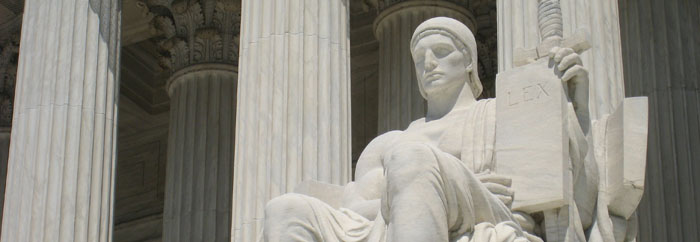
The decade-long legal battle over Google’s massive book scanning project is finally over, and it’s a huge win for libraries and fair use. On Monday, the Supreme Court declined to hear an appeal by the Author’s Guild, which had argued that Google’s scanning of millions of books was an infringement of copyright on a grand scale. The Supreme Court’s decision means that the Second Circuit case holding that Google’s creation of a database including millions of digital books is fair use still stands. The appeals court explained how its fair use rationale aligns with the very purpose of copyright law: “[W]hile authors are undoubtedly important intended beneficiaries of copyright, the ultimate, primary intended beneficiary is the public, whose access to knowledge copyright seeks to advance by providing rewards for authorship.”
Google Books gives readers and internet users the world over access to millions of works that had previously been hidden away in the archives of our most elite universities. As a Google representative said in a statement, “The product acts like a card catalog for the digital age by giving people a new way to find and buy books while at the same time advancing the interests of authors.”
Google began scanning books in partnership with a group of university libraries in 2004. In 2005, author and publisher groups filed a class action lawsuit to put a stop to the project. The parties agreed to settle the lawsuit in a manner that would have forever changed the legal landscape around book rights. The District Court judge rejected the settlement in 2011, based on concerns about competition, access, and fairness, and so litigation over the core question of fair use resumed.
Judge Chin, Judge Leval, and the Supreme Court all made the right decisions along the long and winding path to Google’s victory. Libraries around the country are now free to rely on fair use as they determine how to manage their own digitization projects–encouraging innovation and increasing our access to human knowledge.
Pingback: Google Library Project Legal: Let the Robots Read! | Library Stuff
good content for every one or about the historic times and ancients.
It is too bad that the QUALITY of the scans are not considered to be an important part of this argument. Improperly scanned books, those scans done in a sloppy, un-proofed fashion and which are not color corrected are almost the same as not having the text at all. Google scans are, in my experience, very poor. There seems to be no quality control and there is no regard to the aesthetic aspect of book production. Going through the process of scanning a book does not make the book available to the public if it is badly done.
Additionally, when is the Hathi Trust going to stop keeping books in the public domain essentially unavailable except to universities and other private institutions? That doesn’t make the texts public. It keeps them FROM the public.
Organizations that limit the availability of Public Domain works by poor reproduction and equivocal regulations violate, at the very least, the spirit of the regulations. That is not my idea of ” open access.”
The problem with this ruling is that google does not scan only “old” books. It scans brand new ones, too. (Happened to me.) Some publishers are apparently OK with google doing this and thus give away the author’s work, with no remuneration to the author and no notification that this is being done and thus no ability for the author to take the opportunity to get an errata notice inserted (should one be needed.) It kills sales, print & electronic, so the publisher & google get cozier but the author gets not only “nothing” but less than he or she might have if the publisher had said “no” to google and “yes” to a feature like amazon’s “search inside the book.”
A Great win for human knowledge. Hooray
Great news for readers and the general public.